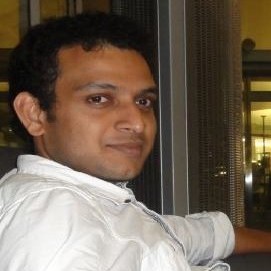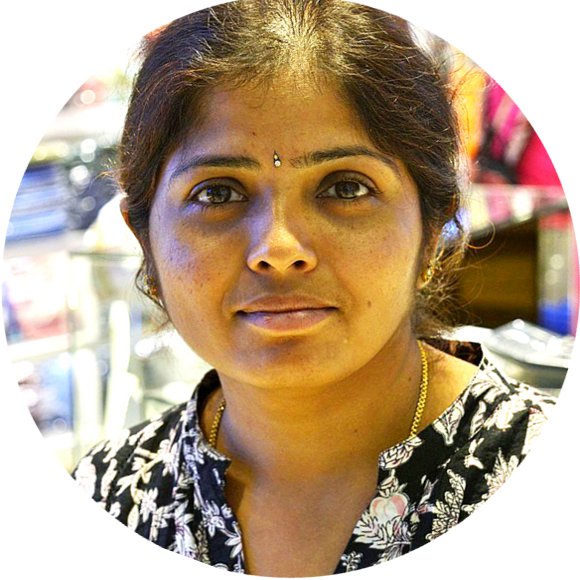We have gotten into the habit of thinking deeper about one topic on a weekly basis. We pick topics based on anything interesting we read - so the topics can range from 'how to express the value of testing' to 'Dieter Rams' design principles' to 'effective remote work habits'. Employees are guided to spend no more than one hour researching the topic online. The emphasis is on coming up with their own ideas and interpretations. We then meet as a group to exchange ideas. I love this habit and consider it one of the more unique benefits you will enjoy at Qxf2.

24-Jan-2017
There are many approaches to remain highly employable. I recently heard stumbled into a bunch of articles around being one topic - knowing a lot but being really good at one thing. Thoughts?


Arun
Having a wide range of knowledge/skills in a lot of areas, while being really good at one thing gives you plenty of options. This kind of skill set is especially important for smaller companies as they cannot afford full-time roles for every position. You will be highly valued if you can either bridge the gap in communication between job roles or perform passably in a vacant job role. Classic examples would be web developers with passable devops skills and testers that can bridge the gap between business and development. Like everything else, there are negatives to being a T-shaped person: you need to put in a lot more effort to pick up new areas and the hurdle to clear interviews is harder. There are very few job openings that specifically look out for people with a combination of skills. After a T-shaped person is hired, they are immediately viewed as valuable. But during the interview, they are seen somewhat negatively.

Avinash
I really liked these articles on T-shaped people. I see a lot of people who have multiple skills and become very successful. Like decent sportspersons become coaches, commentators as they have multiple skills. As a tester, we should also have multiple skills like communication, learning, a bit of coding. As in present job market, it's hard to get jobs just saying you are a manual tester. You need to know some scripting and coding skills to become more marketable.

Annapoorani
I completely agree with Scott's principle. We need to be on top of two or three skills but the important thing to note here is that these skills should complement each other. This combination will make us a valuable resource and we will be able to add a lot more value in whatever we are doing. For example, as a tester, if we have good communication skills and detail orientation, that will make us work efficiently with the business and development teams. I believe this is a continuous process as we should keep sharpening our skills to ensure we stay on top 25% as he mentioned. At the same time, we should continue to develop other skills that will give us the edge in our role.

Smitha
Kent talks about the metaphor and why it fails, hence the paint drip. I don't completely agree to the paint drip concept and also don't completely agree to Keith's metaphor either. Everyone has some skill set which they put into use. Not all are curious, some get comfortable with a particular drip roll and want to stay on it forever. That doesn't mean you are not skilled. Off-course you are not curious though. The ones who get bored staying on the drip roll and move onto the next drip are the curious ones, this way your skillset is also explored. That's what I think.I like Scott Adams article. I agree about the average successful like he has mentioned about. Figuring out what you are best in one specific thing is a journey for some people, it might not happen too soon and it's difficult. Second strategy is very well written. His example is classic too. I completely agree that atleast one of our skills should be communication. Add your passion to it, this would definitely work. I would like to add that people often mistake that if they have identified their passion, then that means they are extremely good at it without even trying it.

Indira
I like the article by Scott Adams, I completely agree that a individual should possess skills and knowledge that are both broad and depth. The present software industry is full of open source solutions and other innovations that are making our world more interconnected and complex. These innovations will lead to tremendous change in the way we work. To understand, manage, and thrive in this changing world, technology professionals must never stick to single area of expertise, but has to be multi skilled to be in the race. Earlier organizations used to recruit technology specific people for their projects but now a days they are hiring with a different mindset, they are looking out for candidates who are good at one or more skills, who can adopt continuous learning, ready to expand knowledge areas. Also i agree with author that along with these skills communication and public speaking skills are necessary and it will definitely add value. In the other article by Kent, i like the term "Moving the brush" which sounds like curious exploration. But the author describes t-shaped as pre-planned which I don't completely agree. As your main skill doesn't have to be something you've planned for in advance. I strongly feel that at Qxf2 we are definitely T- shaped professionals, because we are not only involved in Testing and Automation coding but also continuously learning new things daily.

Shiva
This article answered the question i kept pondering- How will i be able to explain people what i know and how i came to know them. I am a Software tester, it is expected that i have some knowledge on testing automation tools but i am also interested in Flask, JS and Python. Software testers doesn't necessarily have to know web frameworks or software languages. I would like to see them as my secondary skills in addition to my primary skill(Selenium). I also agree with Scott Adams where he advises everyone to be the best at one skill and be very good at a few secondary skills and that communication is a useful secondary skill to be good at.

Rohit
The articles talks about the T-shaped people. A combination of two, being a specialist in one thing and generalist for few other skills. I partially agree with the keith's metaphor, because I really believe setting goals to grow in a certain specific area can pay off in many ways, but that needs a lot of perseverance and resilience to get that perfection. In this modern age, as a fresher I need to adapt this T-shaped personality for remaining employable. We need to have both the depth and breadth in our skills and this will be an advantage. I also agree that we should have mixture of our skills and communication (written and verbal). Suppose if you are an extremely good copywriter and additionally have general knowledge about internet marketing, then the combination of both is really powerful.
© Qxf2 Services 2013 -